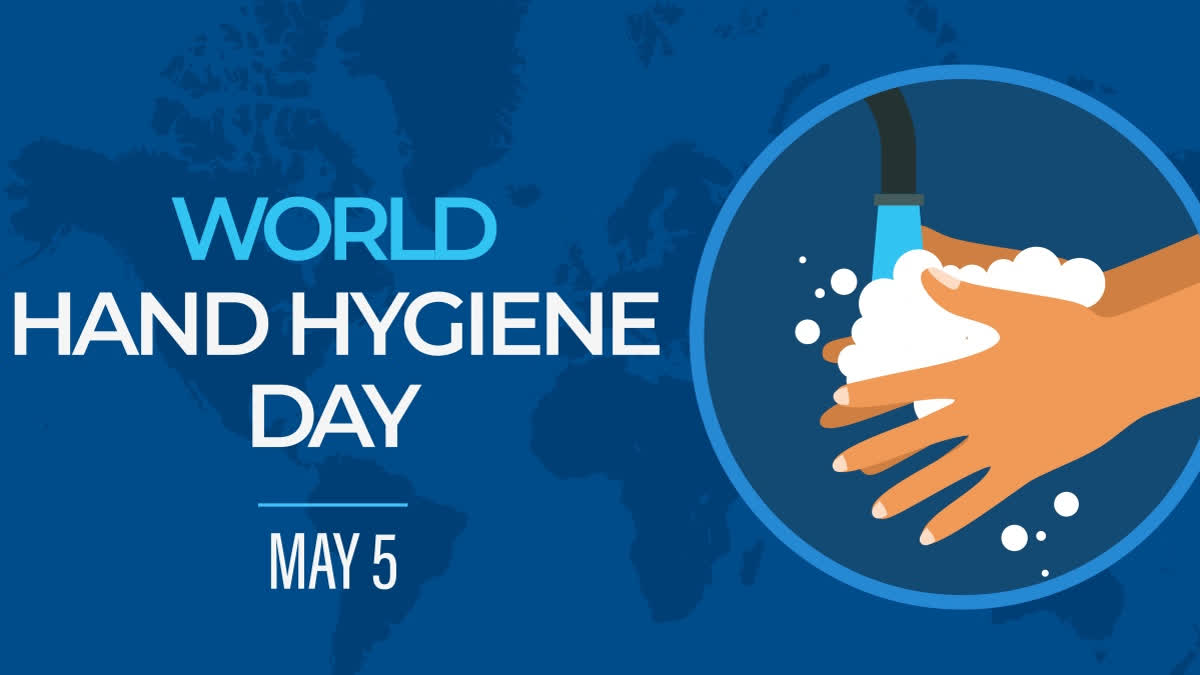World Hand Hygiene Day is observed on May 5 to make people aware of hand hygiene. According to health experts, overall health can be improved to a great extent by keeping hands clean. Clean hands are the most appropriate and effective way to prevent and remove the spread of germs. This day is observed every year to encourage people across the world to practice hand hygiene in healthcare facilities to avoid infections.
World Hand Hygiene Day 2024 Theme
The theme for 2024 is "Promoting knowledge and capacity building of health and care workers through innovative and impactful training and education, on infection prevention and control, including hand hygiene."
World Hand Hygiene Day: History
World Hand Hygiene Day is a global campaign that was launched in 2009 as a part of a major global effort to improve hand hygiene in health care. It was led by the World Health Organisation (WHO) to support healthcare workers and was a natural extension of the WHO First Global Patient Safety Challenge: Clean Care is Safer Care work.
Importance of the Day
The day is observed to create awareness of the importance of hand hygiene and good hand hygiene practices to prevent the spread of diseases and infections. The day is recognised worldwide and it is aimed at highlighting the importance of hand hygiene in the prevention of ill health. It is observed to encourage people to practice good hand hygiene behaviours that can protect them against infections and diseases.
COVID-19 Reinforces the Importance of Hand Washing
The COVID-19 pandemic has seen a focus on education and information on hand washing aimed both at people working within the health sector as well as to the general public. There has been a proliferation of public health messages through various sources about the importance of handwashing and the correct techniques for handwashing.
Our hands are a critical vector for transmitting microorganisms (Edmonds-Wilson et al. 2015). The cross-transmission of these organisms to others occurs when we fail to wash our hands effectively. Within healthcare systems and services, there have been almost continual awareness campaigns in place to encourage hand washing among health service personnel, patients and visitors.
Top Benefits of Proper Hand Washing
Bacteria accumulate on our hands constantly, so it’s impossible to keep them completely germ-free. But, washing your hands properly, and often, limits the transfer of germs and has many great benefits.
- Keeps your workplace clean
- Less food-borne illnesses
- Lowers survival rate for lingering bacteria
- Helps combat the rise in antibiotic resistance
- Keeps kids healthier
- Prevents infections through eyes, nose and mouth
Key Times to Wash Hands
- Before, during and after preparing food
- Before and after eating food
- Before and after taking care of someone at home, who is sick with vomiting or diarrhoea
- Before and after treating a cut or wound
- After using the toilet
- After changing diapers or cleaning up a child who has used the toilet
- After blowing your nose, coughing, or sneezing
- After touching an animal, animal feed, or animal waste
- After handling pet food or pet treats
- After touching garbage
Handwashing helps prevent spread of infectious diseases
Several infectious diseases can be spread from one person to another by contaminated hands. These diseases include gastrointestinal infections, such as salmonellosis and respiratory infections, such as influenza, colds and coronavirus (COVID-19). Washing your hands properly with soap and water can help prevent the spread of the germs (like bacteria and viruses) that cause these diseases.
Some forms of gastrointestinal and respiratory infections can cause serious complications, especially for young children, the elderly, or those with a weakened immune system.



